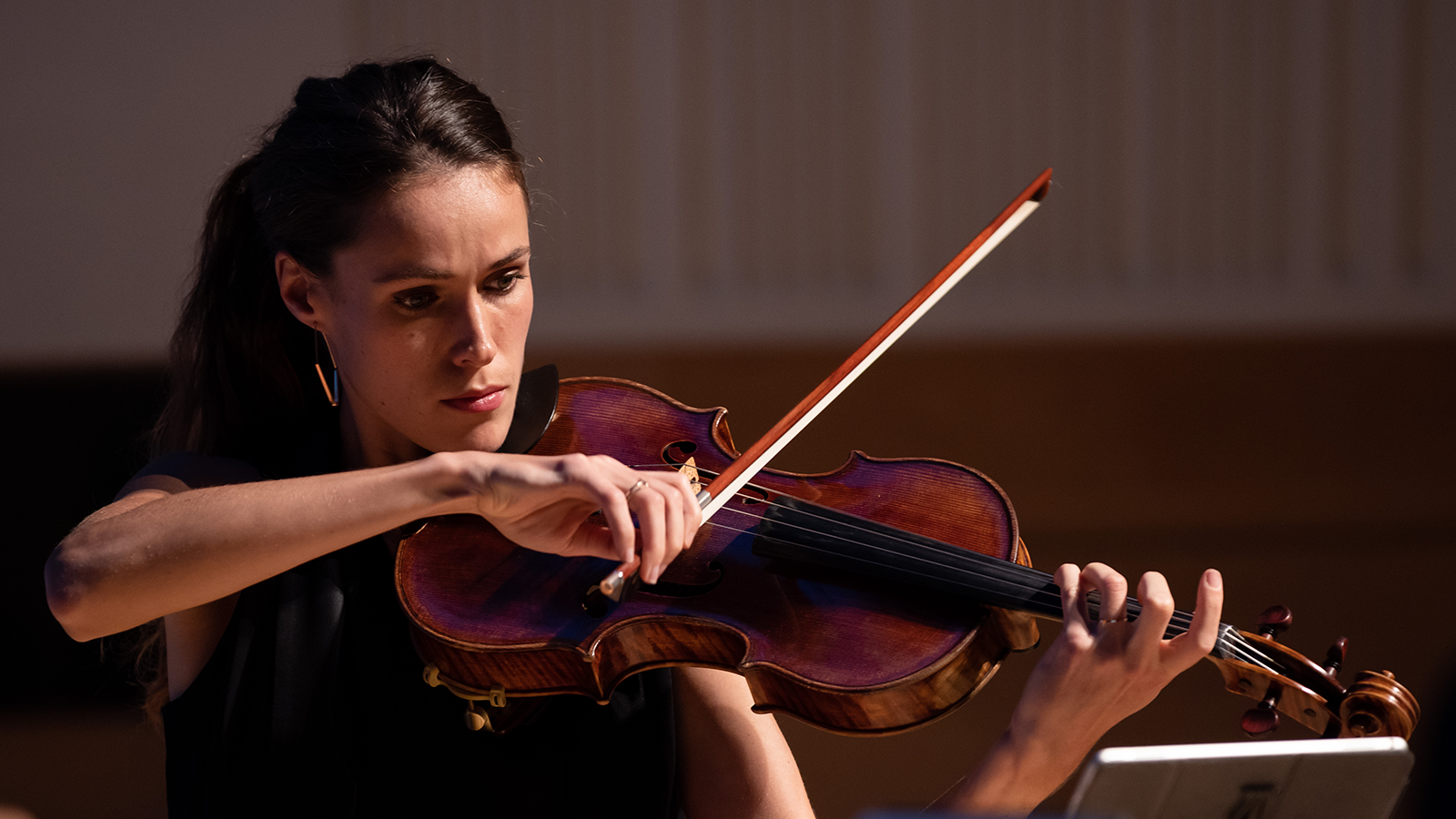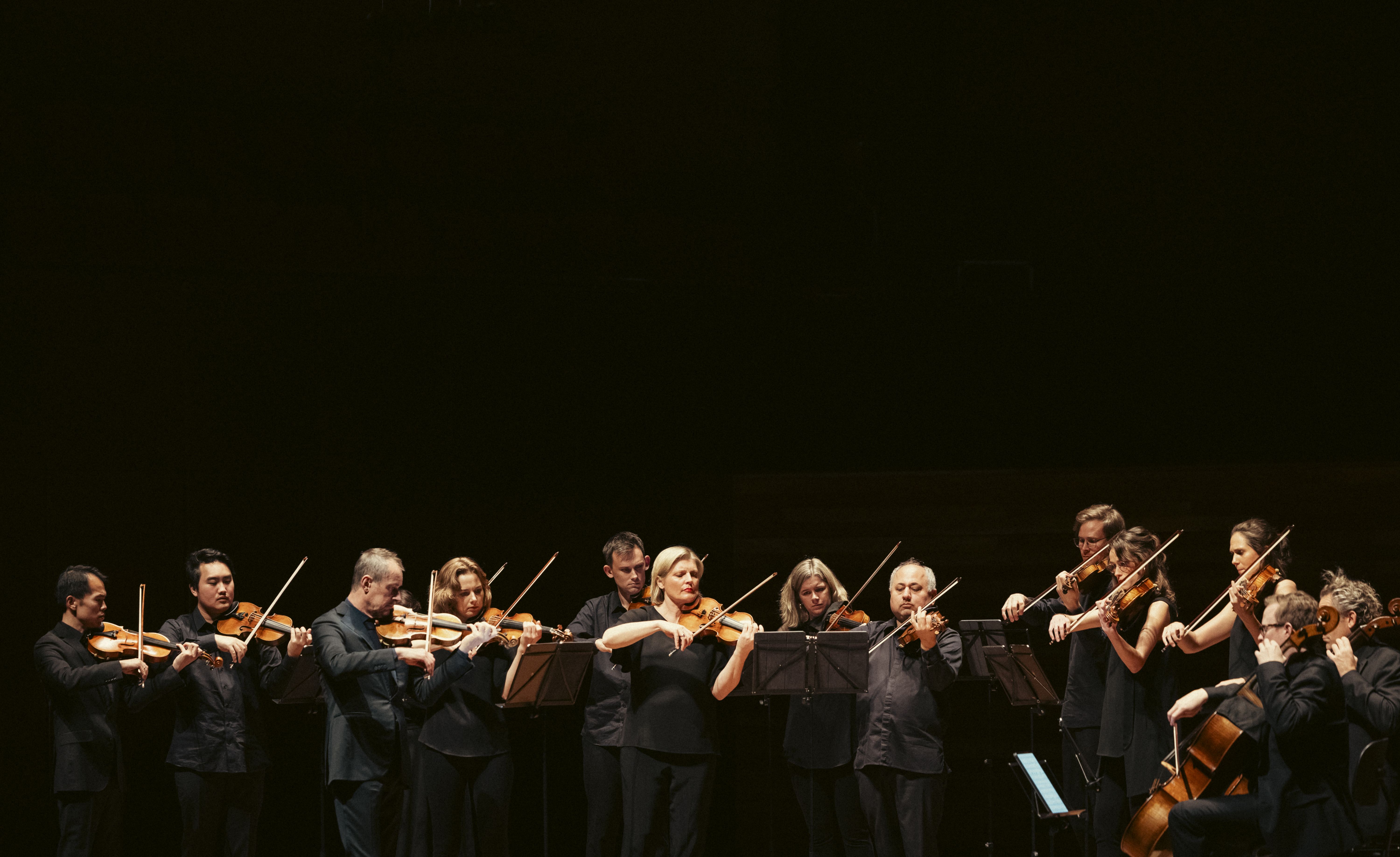
As the Orchestra prepares for its fifth national concert tour of 2023, Dvořák's Serenade, ACO Viola Liz Woolnough has given us the rare opportunity to step into the practice room with her, and witness how she starts preparing for performances.
Liz, who joined the Australian Chamber Orchestra in 2019, lets us in on the steps it has taken to learn Béla Bartók’s notoriously difficult String Quartet No.5. Originally for four strings, the work has been arranged for string orchestra by Artistic Director Richard Tognetti, and comes with some unique challenges for even the most seasoned player.
“This is not exactly the piece you want to start practising a week before the first rehearsal,” Liz says. “I personally have not played this piece before, and I’ll be honest it took me an hour to get through the first two pages!”
In the video above, she's generous enough to demonstrate her approach to practising something as difficult as this.
Liz says: “We are really excited for you to come and hear us play this amazing energetic, visceral piece of music that I think we are all excited – and slightly daunted – to play!”
Liz's practice tips
1. Listen to it first, and read the score at the same time
“Just looking at this gives me a migraine,” Liz laughs. “The first thing you want to do is listen to it.” And listen to it while reading the full score, Liz suggests, so you know how all the different parts fit together. “It doesn’t make much sense to play it without listening to it. There are so many interlocking lines and [you’re] bouncing off lots of different parts.”
2. Don’t trip over hidden triplets!
When you first learn a rhythmically, and tonally, difficult piece, looking closely at the musical notation is vital for picking up the small details in the music.
3. Nail the unison parts and appreciate the finer details
The piece starts with all parts in unison, which presents a challenge for any player. Textures, tone, rhythm and tuning has to match perfectly between each player and the next.
4. Let every note be heard
“There are all these funny technicalities. Even in a glissando, he’s written every note out, so I assume he wants every note to be heard,” Liz says. Make every note count.
5. Concentrate on repetitive patterns, and don’t get complacent
“The thing with Bartók, and with this piece in particular,” Liz confesses, “is that the patterns tend to change a little bit, so just when you think you’re on top of it, there’s another one!” It means focusing during practice, and not getting complacent!
6. Write your own markings to follow
Even the pros mark their scores.
7. Find the main melody to latch onto
Liz performs an excerpt of one of Bartók’s dance-like melodies – it’s rhythmic, punchy and catchy.
8. Nail the tuning!
Liz points out that Bartók’s soundworld, being in the modernist camp, can be more ambiguous than those of his Romantic, Classical and Baroque counterparts. Don’t let that ambiguity be a distraction from precision tuning.
9. Practise it slowly to get it under your fingers
An oldie but a goodie. Slow practice is absolutely essential for any musician. “NOT speed practising,” Liz cautions, “which is what I sometimes do!”
10. Isolate parts that look difficult, and focus on them
It’s not always enjoyable, but it’s got to be done. 🤷♀️
11. Find familiar patterns to make learning new things less daunting
Liz isolates a passage of minor sevenths – a passage which, by the way, is pretty high on the viola – and demonstrates how a) discovering that they are all minor sevenths, and b) knowing the finger pattern for a minor seventh has helped her learn this passage more quickly. “That line is probably the easiest of the whole piece so far!” We suspect she’s being modest.
12. Break it down, note-by-note, into more manageable chunks
13. Remember – rhythms are most important in Bartók!
“Rhythm is actually the most important thing in a piece like this,” Liz tells us. “If you are off your game you are going to let some people down – including yourself! And that’s never nice.”
Dvořák's Serenade, featuring Bartók's String Quartet No.5, tours to Sydney, Brisbane, Canberra, Melbourne, Adelaide, and Newcastle, 4-19 August. Click here to book tickets now.
